Restauración de la ciencia, la participación comunitaria y el turismo con megafauna marina en la Reserva Marina de Gladden Spit y Silk Cayes.
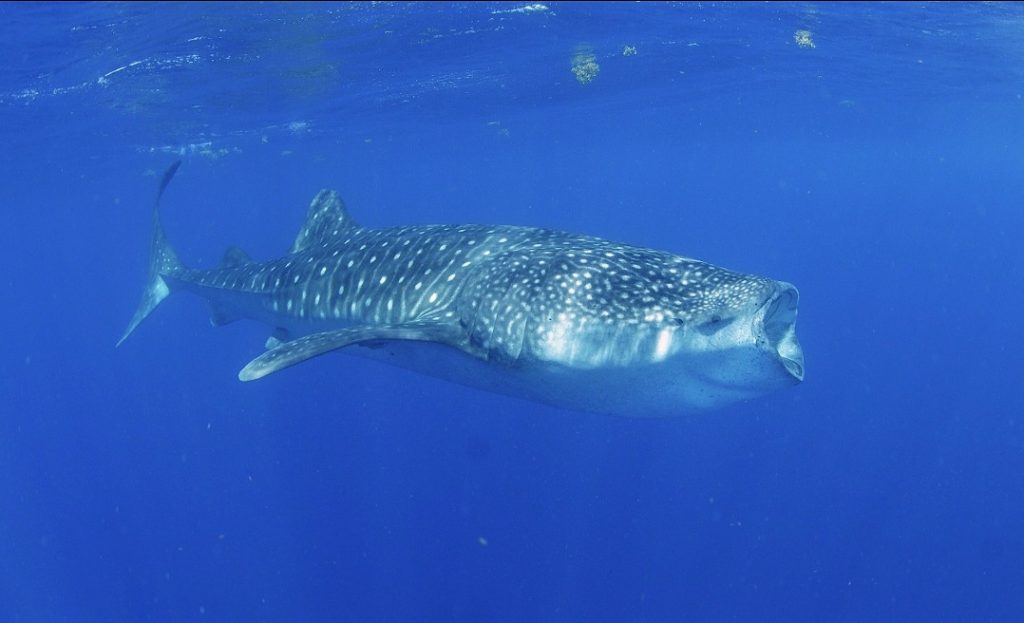
Este proyecto dirigido por MarAlliance tiene como objetivo establecer un conocimiento actualizado de peces de gran tamaño e importancia comercial, y desarrollar una base para un turismo responsable y comunitario de encuentro con la fauna marina en Belice centrándose en uno de los lugares icónicos de desove de peces (FSA) de Belice, Gladden Spit. El […]
Líneas de base y seguimiento estandarizado a largo plazo
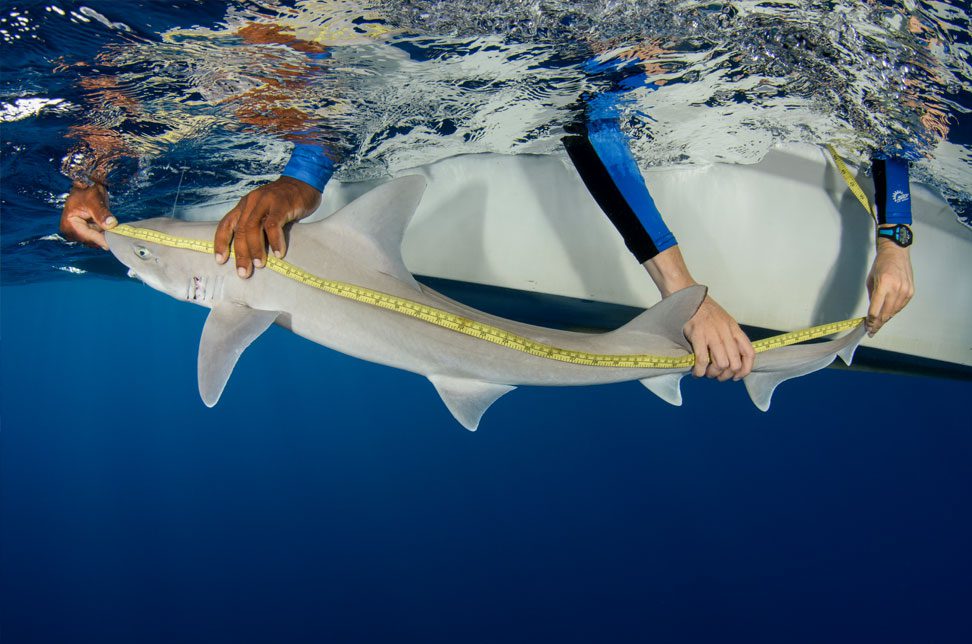
¿Cómo sabe que sus esfuerzos para proteger las poblaciones de fauna marina y sus hábitats críticos tienen éxito? Si no se tiene un punto de partida, es difícil medir un objetivo en movimiento. Un estudio de referencia -básicamente un recuento de lo que se observa en un conjunto de lugares representativos en determinados momentos- se […]
Biología de las especies amenazadas
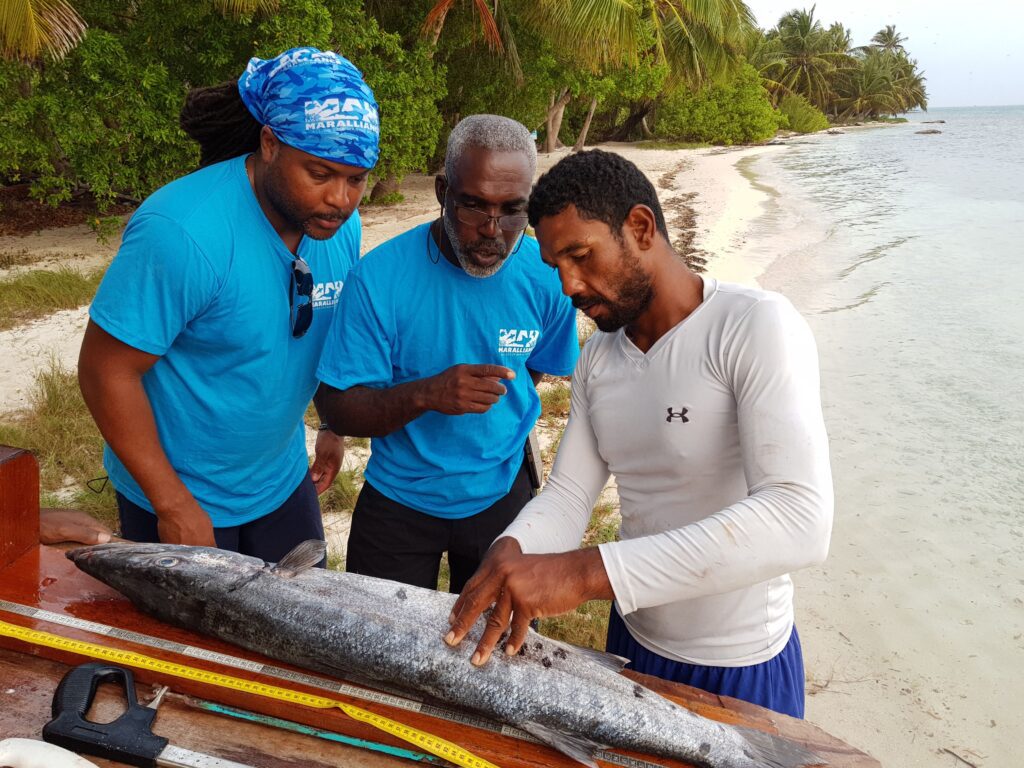
La determinación de la tasa de crecimiento específica de una especie, su tamaño y edad de madurez, así como su ritmo de reproducción, nos dice mucho sobre su vulnerabilidad a la explotación pesquera. Una especie de tiburón de crecimiento lento que sólo produce 4 crías cada dos años puede no ser capaz de recuperarse de […]
Ecología espacial de las especies amenazadas
La ecología espacial es el estudio del uso que un organismo hace de los hábitats y ecosistemas a lo largo de su vida. Diversos factores influyen en la ecología espacial, como la disponibilidad de alimento, el tipo de hábitat, la estación del año, la actividad reproductora y la evitación de depredadores. Como es lógico, a […]
Pesca sostenible y reducción del esfuerzo pesquero
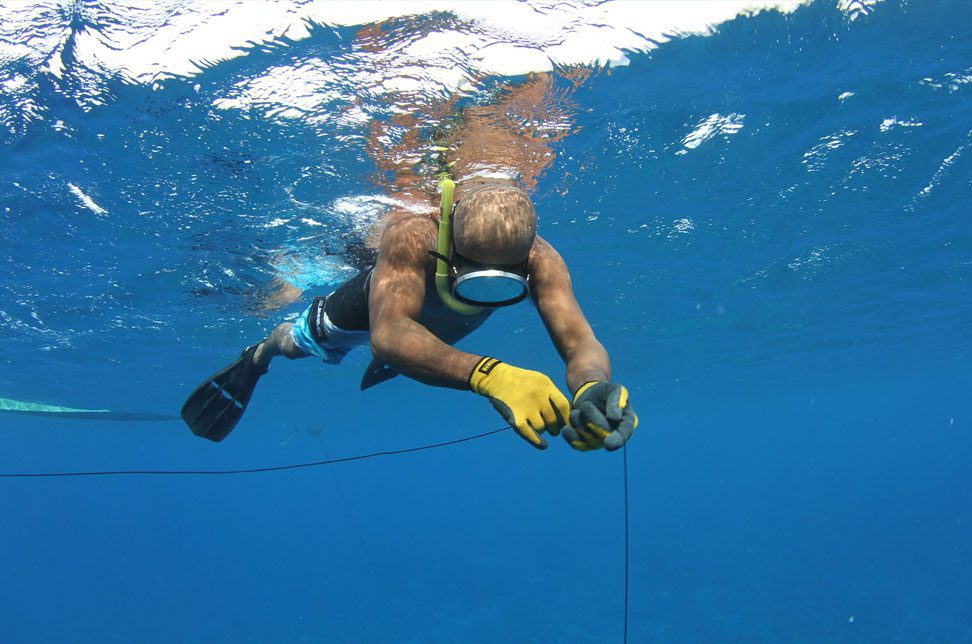
Para los países costeros en desarrollo, la pesca de diversas especies suele ser importante para el sustento, la cultura y la salud de la población humana. Sin embargo, en muchas regiones disminuyen las capturas y se reduce el tamaño de los peces capturados. La recogida de datos de las pesquerías puede permitir a los investigadores […]
Profundidades marinas: La última frontera
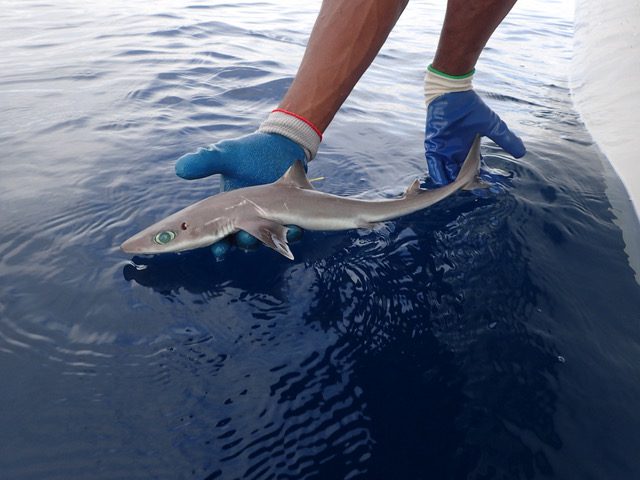
Los tiburones y los peces que habitan en aguas de más de 150 m de profundidad se encuentran entre las especies menos estudiadas de los océanos del mundo, y las pesquerías de aguas profundas suelen establecerse en estas profundidades antes de que se pueda realizar ninguna investigación sobre la biología y la ecología de los […]
Pesca recreativa
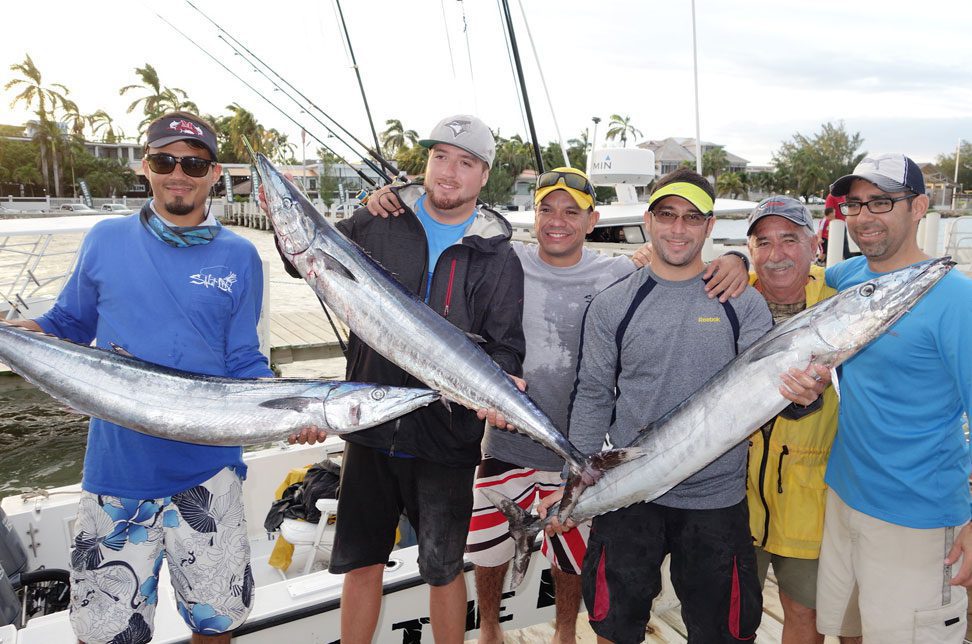
Muchos peces apreciados por los pescadores deportivos o recreativos son especies de gran tamaño y altamente migratorias. Estos animales suelen ser depredadores ápice e indicadores de la salud de los océanos. Al ser altamente migratorios, los peces de pesca deportiva pueden ser objetivo de pescadores de más de un país, lo que complica su gestión. […]
Evaluaciones socioeconómicas
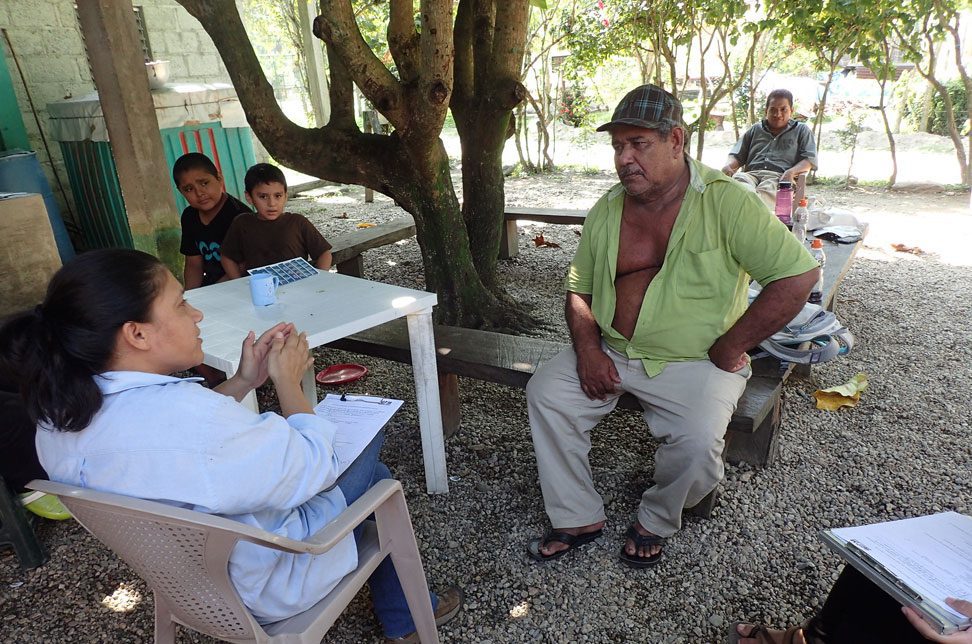
Muchos países tropicales carecen de datos sobre la pesca y la megafauna marina. Para colmar las lagunas de datos y respaldar las medidas de gestión cautelar, hemos realizado evaluaciones socioeconómicas de una serie de pesquerías artesanales que incluyen peces asociados a los arrecifes, tiburones, meros Goliat y peces de aguas profundas. Dependiendo del grupo destinatario […]
Evaluaciones de la percepción pública
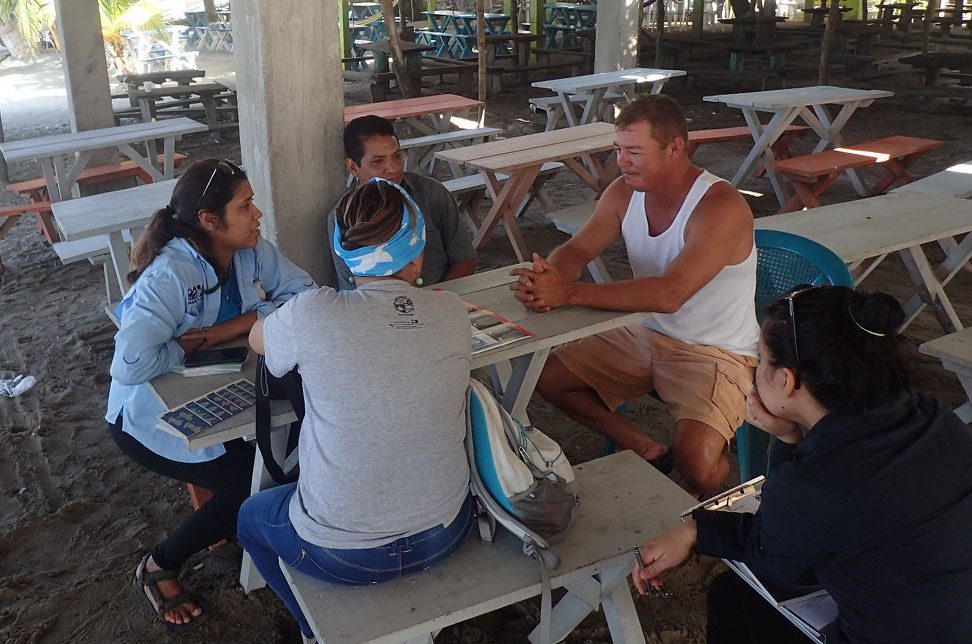
En nuestro afán por concienciar a la opinión pública sobre la fauna marina y, en particular, sobre los tiburones, hemos llevado a cabo iniciativas de divulgación y educación en todo Belice desde 1999. A partir de 2001, estas iniciativas se ampliaron a otros países como Madagascar, Micronesia, México, Guatemala, Cuba y Honduras. Sin embargo, necesitábamos […]
Zonas marinas protegidas y grandes peces
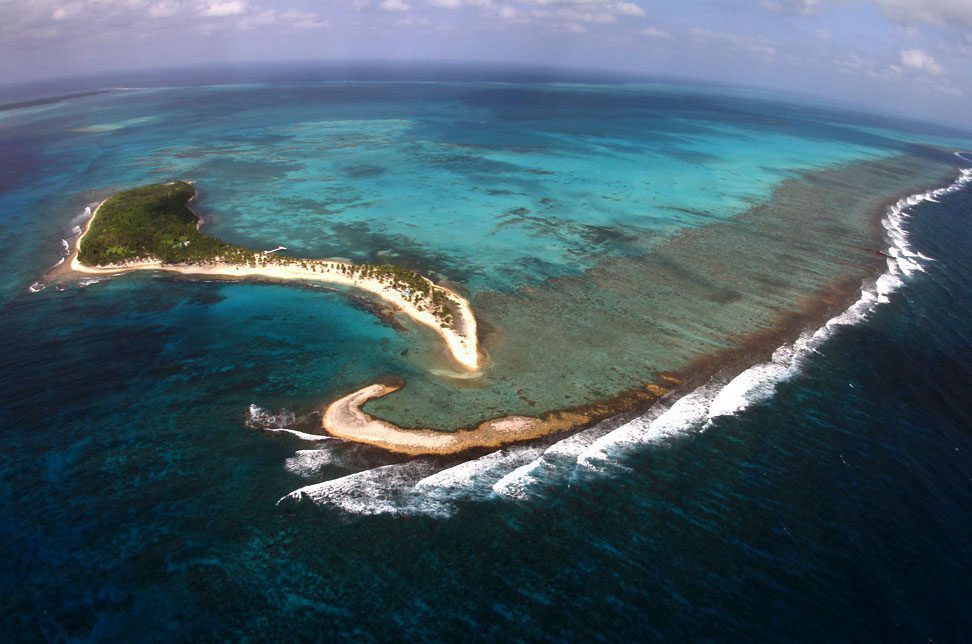
Las áreas marinas protegidas (AMP) se utilizan cada vez más como herramienta de gestión y se consideran una unidad de gestión espacial utilizada para prohibir o restringir la pesca u otras actividades destructivas dentro de un área definida. Aunque algunas AMP están totalmente protegidas y prohíben la pesca o cualquier extracción de fauna marina, otras […]
Colaboración con la Sociedad para la Conservación del Pez Sierra
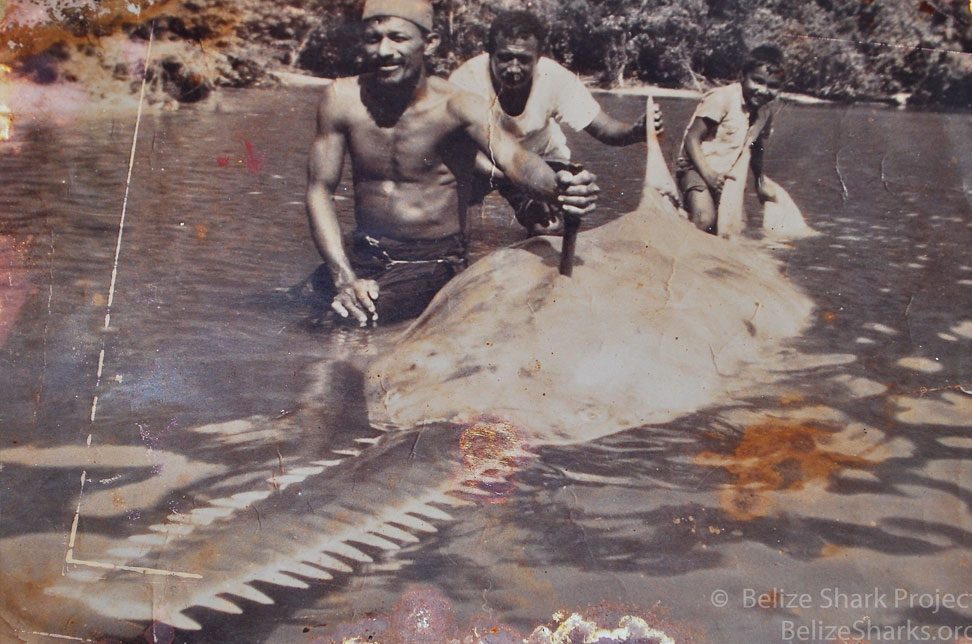
El pez sierra, una familia de peces cartilaginosos formada por cinco especies, fue identificado recientemente como la más vulnerable de todas las familias de elasmobranquios. Ecológicamente extinto en la mayor parte de su área de distribución debido a la sobreexplotación, sobre todo por el uso extendido de redes de enmalle, el pez sierra está ahora […]
Colaboración para la ciencia genética
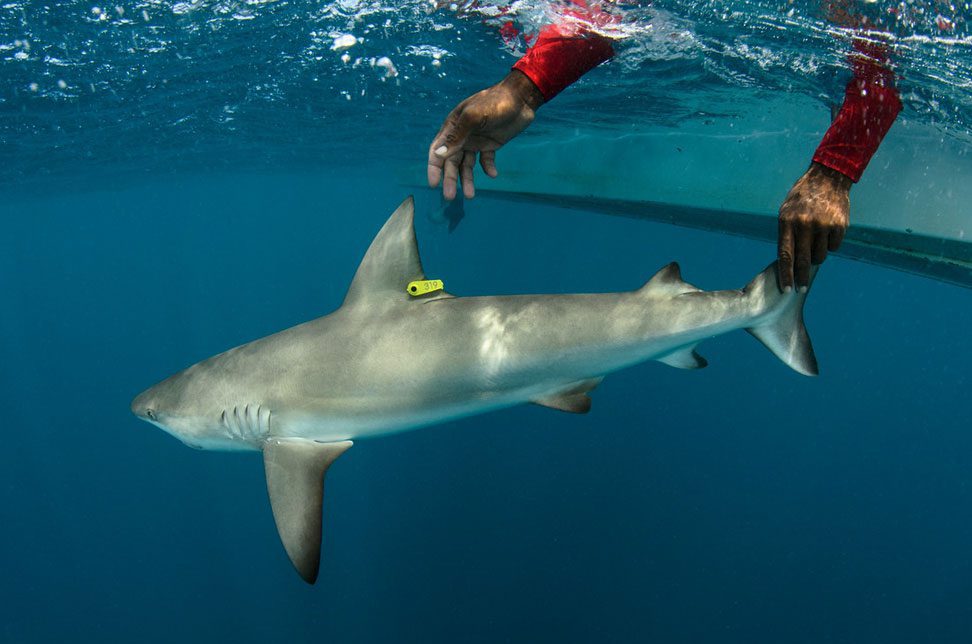
El estudio del ADN de los organismos puede revelar mucho más que su código genético. Colaboramos con científicos de los Estados Unidos y Australia para determinar la identificación de especies, pautas de movimiento y conectividad, biodiversidad, parentesco entre poblaciones y ecología espacial de tiburones, rayas y peces de aleta. Recogemos información genética cortando un pequeño […]
